Cochlear Implants and Learning Music Again
See also: Articles on Music, Hearing Loss, and Hearing Devices
As you read this website, keep in mind the following:
-
People with hearing loss can differ in many ways.
-
Some information may be more similar to your situation.
-
Pick and choose the information most useful for you.
Musicians with Cochlear Implants (CIs):
Information for Cochlear Implant (CI) Users and Families
Introduction: Who is this webpage for?
Adults who use CIs, who want to make music as well as listen to music.
Musicians who use CIs may have some different experiences with their devices than CI users who do not have musical training or background. Their motivation to restore musical enjoyment may be greater than for CI users as a general group.
-
Musicians have spent countless hours throughout their lives practicing and learning about music, as well as sharing music with others; music can be a part of their personal identities.
-
A passion for music can lead musicians to invest considerable time and effort to try and restore musical enjoyment.
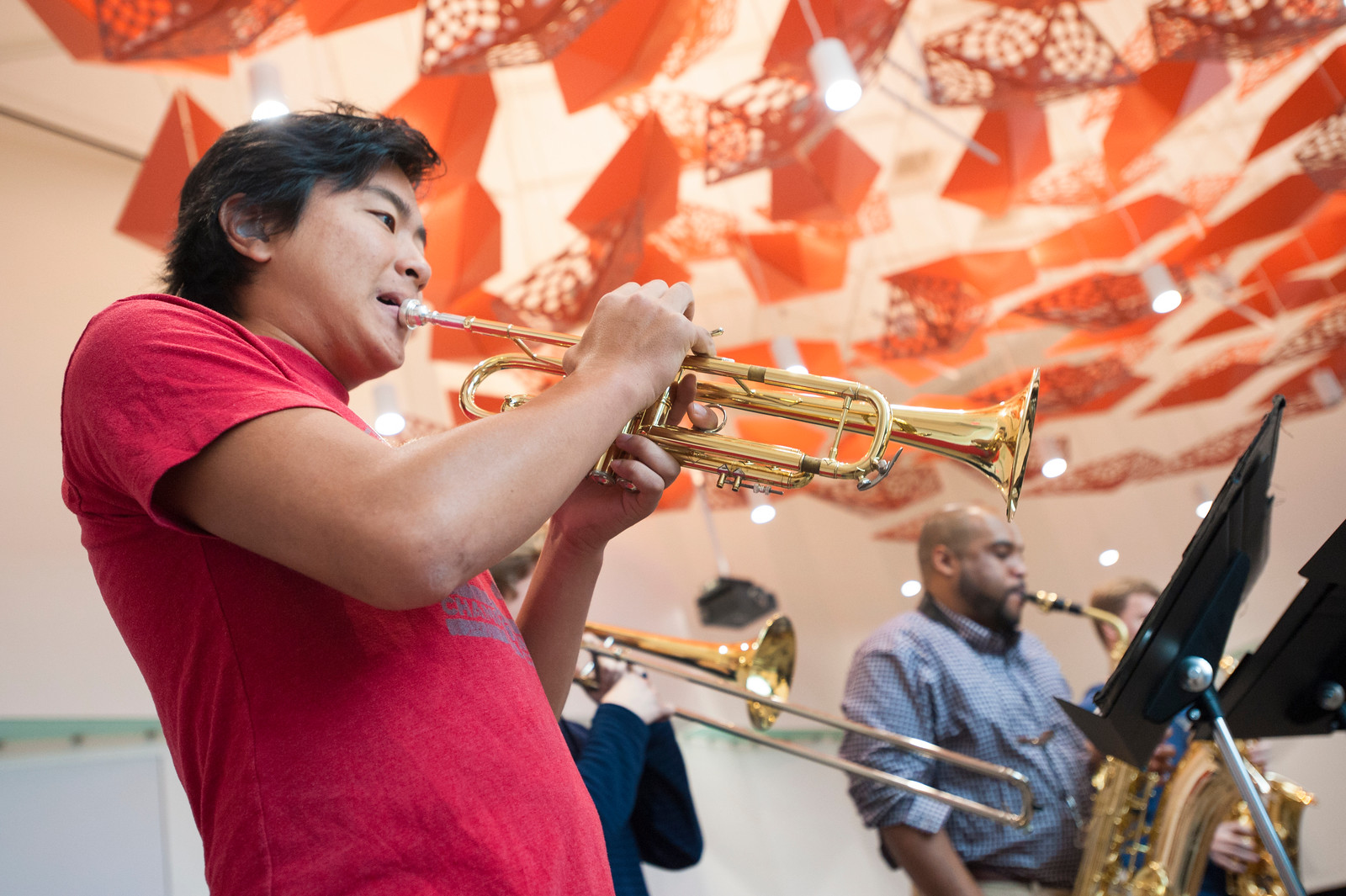
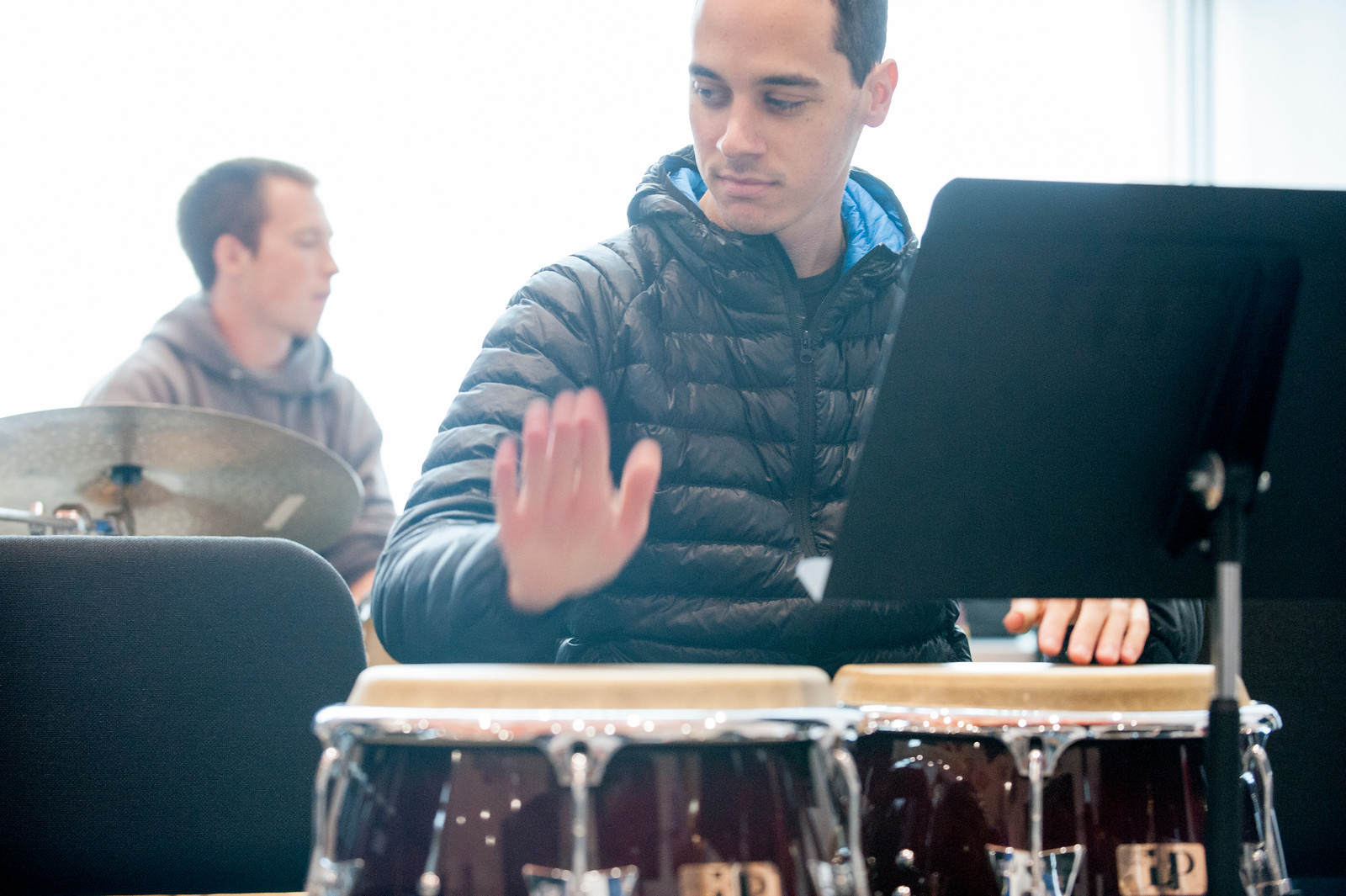
1, 2
This website summarizes information from a number of studies. We have included direct quotes from CI recipients who are musicians. This information describes circumstances that can either help or hinder music enjoyment. This includes:
-
Factors that affect music-making
-
Strategies or training programs that can improve music listening and music making
-
Careful choices about music listening and music making
-
Unpleasant factors when playing music
It is important to remember, however, that not all cochlear implant users are alike. You will see from quotes that we share that cochlear implant users do have different experiences.
-
Some trial and error is probably necessary to find out what works for you.
What are some circumstances that can affect successful music-making?
-
Different instruments (including the human voice) may be more or less difficult for CI users.
-
Some instruments provide more visual or vibrotactile feedback on pitch.
-
Some instruments make sounds within a frequency range that are a better match for residual hearing or hearing device characteristics.
-
Some instruments have fixed pitches (e.g., piano or percussion); others require ongoing tuning (e.g., violin, guitar, or trumpet).
-
Singing in tune with others is especially challenging for many cochlear implant users.
-
-
Previous music instruction.
-
Some individuals use their knowledge of music theory or ear training as part of listening practice.
-
Knowledge of theory exercises, pitch relationships, and ability to read notation can help the listener use their memory of sound to piece together the degraded signal.
-
-
-
The amount of residual hearing or onset of hearing loss can affect music-making.
-
More residual (acoustic) hearing can help CI users to hear pitch and timbre more accurately.
-
Some people who grew up with CIs are more satisfied with the sound of music through their CIs because they cannot compare it to more 'normal' sounds.
-
Some people who grew up listening to music can use their memory of musical sounds to 'piece together' an imperfect musical sound.
-
-
A person's individual personality traits can make a difference. Characteristics that tend to help with music-making include:
-
Persistence and hardiness when faced with a challenge.
-
Being able to focus on and maintain a positive attitude.
-
Enjoying new challenges.
-
Patience and acknowledgment that improvement takes time.
-
Flexibility and developing new expectations.
-
These characteristics are sometimes referred to as self-efficacy, or confidence in one's ability to handle challenges as they arise.
-
-
Amount of experience with the cochlear implant.
-
Musicians with CIs often describe the first few months after implantation as most challenging.
-
This can lead to negative feelings such as frustration, lack of control, and avoiding music altogether.
-
-
With increased experience and focused listening practice, music perception can improve over time.
-
Here are some stories from musicians who use cochlear implants:
In this video, cochlear implant recipient Tim Brandau talks about how he hears music via cochlear implants.
Kay Basham, who is a pianist and a cochlear implant recipient, talks about her experience with cochlear implants and music.
A musician and bilateral cochlear implant user, Alex Mansouri shares the story of improving music perception.
How can musical training and background in music help with music listening?
-
Playing instruments and listening to music frequently can improve overall perception and enjoyment.
-
Increased exposure and repeated listening help to support learning and how the brain processes music.
-
-
Prior musical training can help you identify songs. Your brain can draw on memories to piece together what you are hearing.
-
Playing instruments sets the foundation for understanding building blocks of music. You know what music is 'supposed' to sound like.
-
Training helps with music perception and pitch discrimination.
-
Musicians are trained to hear subtleties in music; this can carry over to listening with a cochlear implant.
-
Musicians can develop an internal sense of pitch or timbre from training. This can help them to make sense of what parts they can extract from the implant signal.
-
Musicians may be better trained to hear certain timbres and ranges.
-
-
Development of discipline and a strong work ethic can come from taking lessons.
-
The discipline of practicing an instrument can carry over to practice in music training with a cochlear implant.
-
I was a musician in high school and middle school. I understand elements in music and have a decent idea of what to look for.
There's a considerable level of individual effort to maximizing the benefits of music. Having a background in music (playing piano/drums growing up) assist with identifying songs.
What can make an environment pleasant for music-making?
-
Adjust the environment and instrument for the best sounds.
-
For example, putting quilts or blankets on the walls to help absorb sound.
-
-
Limit competing noise.
-
Seek out good acoustics.
-
Room with no echoes.
-
The size of the room can make a difference, as well as surfaces in the room.
-
Playing piano- For this I need to be in a room where the acoustics are good and do not reverberate. I have a quilt hanging behind my piano to help stop the sound bouncing off the wall.
What technology can help benefit music-making?
-
Adjust settings on your devices.
-
Reduce sensitivity on your devices.
-
Use a tuner while playing to check pitches.
What individual effort and strategies can benefit music-making?
-
Practice with focus and dedication:
-
Diligent practice can help the sound become more natural over time.
-
Practice in a variety of listening environments.
-
Practice different chord qualities, building up from simple chords to more complex ones.
-
Experiment with a variety of instruments to find what sounds good to you.
-
-
Use non-auditory sensory cues to complement the information you hear.
-
Visual cues:
-
Following the written music/lyrics can support perception.
-
Try visual cues such as colors to represent different pitches on sheet music.
-
-
Touch:
-
Use a sense of touch to help feel the beat of the music.
-
-
-
Seek input from other CI users:
-
Make contacts at conferences, support groups, or online.
-
-
Try listening exercises to improve pitch discrimination, such as interval training or practicing scales.
-
A well-tuned piano, which has fixed pitches, can be good for this.
-
-
Participate in local choirs/ensembles that are open to the unique musical needs of CI users.
-
The social aspects of music can encourage practice.
-
-
Try working your way up from practicing singing to playing a preferred instrument again.
-
Some implant users find this can provide a different way to internalize pitch.
-
I am a great advocate of playing music instruments to improve my perception of music. In the sixteen years I have been implanted, I have learned to play four new instruments.
My main encouragement to all is to seek out many different listening situations and practice diligently.
I chose to sit at a piano and play things [patterns of notes] until they sounded different. At first, the keys C and G, a perfect fifth interval, sounded the same.
What are some strategies for choosing an instrument?
-
CI users who have a lot of difficulty hearing pitches may prefer to choose a rhythmic instrument, such as the drums or piano.
-
Learning to play an instrument (especially with a CI) takes a lot of practice, so choose an instrument that has a pleasant sound.
-
Note: Which instruments sound most pleasant will differ from person to person.
-
-
If you have some residual hearing, select an instrument that takes advantage of the notes (low to high) you hear best.
-
Some cochlear implant users recommend avoiding instruments that require ongoing tuning, like the violin or cello. Others like the challenge of learning to play in tune.
The last three years, I have taken up violin. I chose this instrument because it gives me the basic melody and doesn't get lost in the chords like on the piano.
What are some strategies CI musicians can use with their music teachers?
-
Choose a teacher who will accommodate and understand your hearing loss. Switch teachers if you need to.
-
Advocate for yourself: Communicate your needs to your teachers so that they can better help you learn.
-
Give your teachers information about hearing loss, cochlear implants, and music so they understand the challenges.
-
This can help them meet your needs and avoid setting unrealistic expectations.
-
Explain what helps you. This can be as simple as asking them not to give you verbal directions while you are playing.
-
-
Unpleasant factors when playing music
Playing instruments and/or singing with a cochlear implant can be an ongoing and difficult process. Some musicians who use CIs report that it takes time to adjust to your instrument. Initially, you may need to cope with unpleasant sounds. Here are some things adult users report as unpleasant regarding playing instruments and/or singing with a cochlear implant:
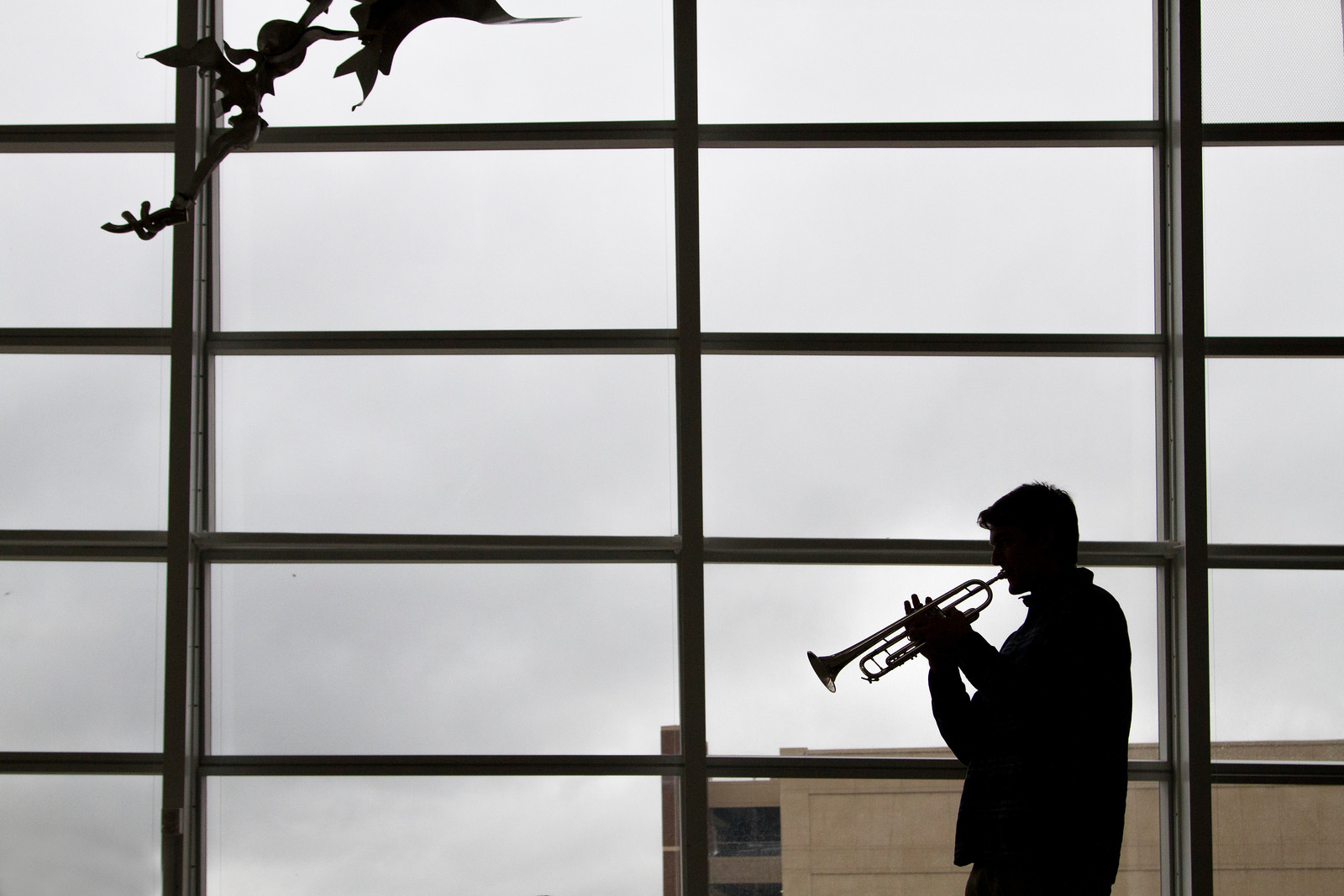
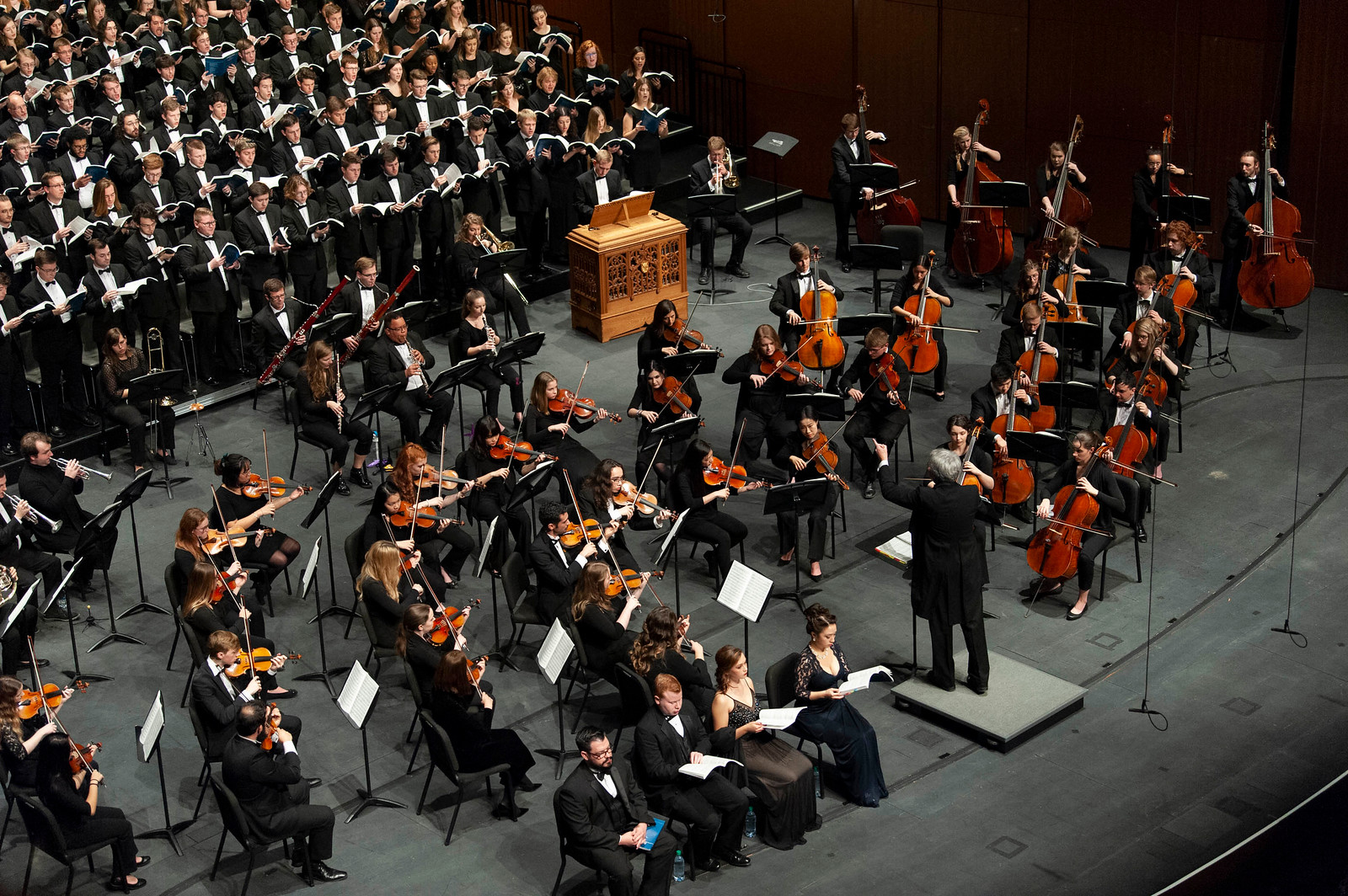
What about making music can be unpleasant or difficult with a cochlear implant?
-
Difficulties hearing close harmonies and other subtleties in music.
-
Problems with pitch:
-
Singing/playing in tune.
-
Difficulty establishing internal pitch and matching external pitch.
-
Hearing key changes.
-
Finding the correct key to a song.
-
Confusion of major and minor modes.
-
Difficulty hearing higher and lower ranges.
-
-
Difficulty adjusting to the instrument after implant.
-
Reduced quality of tone and timbre.
-
Difficulty playing with other people.
As a professional flutist, I had an extremely difficult time adjusting to my own instrument and stopped playing for a number of years. I just couldn't hear the timbre or tone quality that I remembered.
I really do enjoy complex (classical piano) music, but sometimes I feel I miss the nuances of close harmonies… I don't get the heart thrilling vibration some of these close harmonies used to give me.
What aspects of music rehearsals do cochlear implant users find difficult?
-
Poor acoustics.
-
Small rehearsal spaces, especially with many instruments playing at once.
-
Complexity of sound with multiple instruments/voices.
-
One's position within ensemble.
-
For example, being positioned in the middle results in sound coming from multiple directions.
-
-
Constantly having to change programming.
-
For example, having to switch programs between speech and music.
-
It is very difficult for me to hear all voices and harmonies in a full ensemble, plus accompaniment if applicable. My experience can easily turn into what I call 'sound soup.'
As an alto, I'm best situated in the back row where there are no singers behind me. If I'm in front of a tenor, then it gets me confused since I'm singing a different line and my CI is picking up the tenor part.
What aspects of technology do cochlear implant users find difficult when making music?
-
Electronic piano distortion.
-
Potential benefit of using acoustic instruments.
-
-
Programming can affect enjoyment.
-
"Music programs" may not help enjoyment for everyone; they may still distort pitches.
-
Distortion makes it difficult to find the correct pitch and key to song.
-
-
Switching programming back and forth to go between hearing speech and music.
I sing in a choir and the rehearsal room (in a church) has horrible, live acoustics. I find I have to keep changing my CI program to 'voice' when the conductor is speaking and then to 'music' when we are singing.
What negative feelings can be associated with making music for CI users?
-
Missing out on sounds that other musicians can hear.
-
Feeling overwhelmed and exhausted.
-
Feeling stigmatized by other musicians.
-
Feeling dismissed by other musicians.
-
Other musicians thinking it is the person's own fault for having hearing loss.
-
-
Discouragement in feeling a lack of skill.
-
Missing how music used to sound.
We stigmatize those with hearing loss in the pro music community, as if they are somehow at fault.
Being involved in music school makes me understand how much I am missing on a daily basis. It can be overwhelming at times. Maybe we all feel so worked up not wanting to show that we aren't hearing things that it gets in our heads.
What motivates musicians to continue playing music with their CIs, despite difficulties?
-
Importance of music to their identity.
-
Playing music is personally rewarding and pleasurable.
-
Group music-making provides social opportunities and support.
-
Encouragement as music perception improves, such as being able to hear errors while playing.
-
Remembering that learning music is a process; progress is not always immediately apparent.
It's still not perfect; sometimes I lose pitch and have to quit for awhile, but I wouldn't give up what I have for anything.
Suggested reading:
This article shares input from a unique cohort of CI users who are high-level musicians, and their strategies for improving music enjoyment and music-making.
Click on the title to access the article: Gfeller, K., Mallalieu, R. M., Mansouri, AL., McCormick, G., O'Connell, R. B., Spinowitz, J., & Turner, B. G. (2019). Practices and attitudes that enhance music engagement of adult cochlear implant users. Front. Neurosci, 13, 1-11.
Click here to review references used in preparation of this website.
1. All images on this website are used under Creative Commons or other licenses or have been created by the website developers.
2. Click here to access the sources of images on this page.
Source: https://medicine.uiowa.edu/iowaprotocols/music-and-hearing-loss/cochlear-implant-ci-and-music/cochlear-implant-ci-pages-ci-users-and-family-9
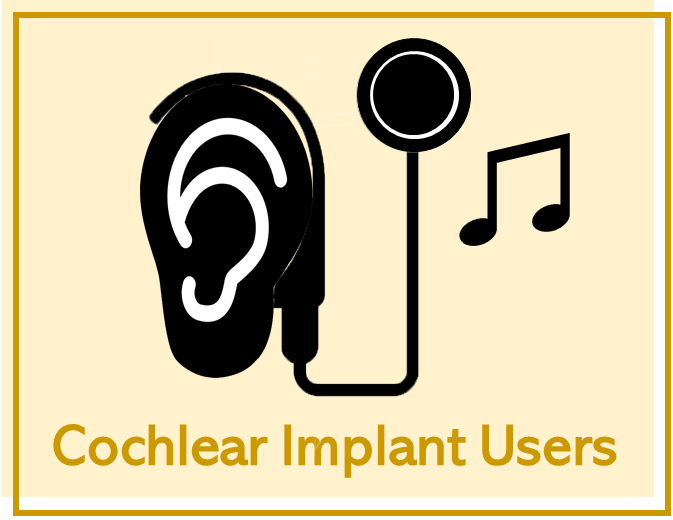
Post a Comment for "Cochlear Implants and Learning Music Again"